LIEKO SHIGA
On 5/4/20, Lieko Shiga wrote:
To everyone who has been worried about me
In the neighborhood where I live (population 370), fifty-three were killed and seven are still missing. The tsunami was nature in all its raw power. It was terrifying beyond imagining. When I think of all those who died, swept away in that unequaled terror, my mind simply stops working. No amount of caring for them on my part can reach those who, swallowed by the water, lost consciousness in such terrible suffering.
In one instant on that day, the value of time, life, death, emotion, and things was wiped out, and all was flattened into uniformity, as far as the eye could see. Then a heavy snow fell and a night of complete and utter darkness descended. Hearing on the radio that the bodies of several hundred people had been found on the coast, and the repeated reports of the nuclear accident at Fukushima Reactor No. 1, just 80 kilometers down the coast, as well experiencing the constant aftershocks, I was prepared for the worst. I was so deeply distressed that nothing seemed strange. Numerous unimportant, random thoughts floated through my mind, and I thought, this will be my end.
Now, I think about bringing back that deep, dark, uniformly black night, and though I hope there is never another tsunami, I am also afraid at the same time that those hours will fade from my consciousness.
At the same time, I am relieved and reassured to have been to resort to the value of things, discussing together with the many strong older women with whom I lived in the evacuation center what we needed, and then requesting them as relief supplies, and distributing them to the right people; and when after looked eagerly I found a single photograph sticking up out of the mud, I was delighted. But not just photographs but also houses and people are buried in the mud. I am living in a reality when all things have been reduced to equal value. That is clearly linked inside me to that dark night. The value of things has been torn apart and stands revealed before me now. And that’s fine.
What I feel compelled to confirm with my entire being is that what I started from January 2008, when I moved to Kitakama, is not over at this moment. If anything I have done in Kitakama up to now was rendered meaningless by the disaster, it was just the things that could be washed away. I was living amidst a pile of things, many of which I won’t miss. If one aspect of the unease I felt at the convenience of daily life arose from my dependence on things, than perhaps it was just the useless dregs of my material desires that were washed away. I was shocked by this. But that dark night during which I experienced that brief but noble epiphany seemed to be telling me not to think of my life solely in terms of attachment to and dependence upon material things; I felt that what really mattered was the way in which I had tried to relate to society. Or at least that’s what I said to myself.
There is still too little information about the nuclear power plant accident, and no one at the evacuation center talks about it. The media may not be reporting everything it should, but we are also avoiding the subject here. Perhaps we couldn’t bear to see the images. I think we find it impossible to conceive of something worse than the present situation, and are just refusing to accept it. I look it as my own fault, because of all the electricity I used to use.
There’s so much I want to write about that I’m afraid I could go on forever.
I am very grateful for your concern
Lieko
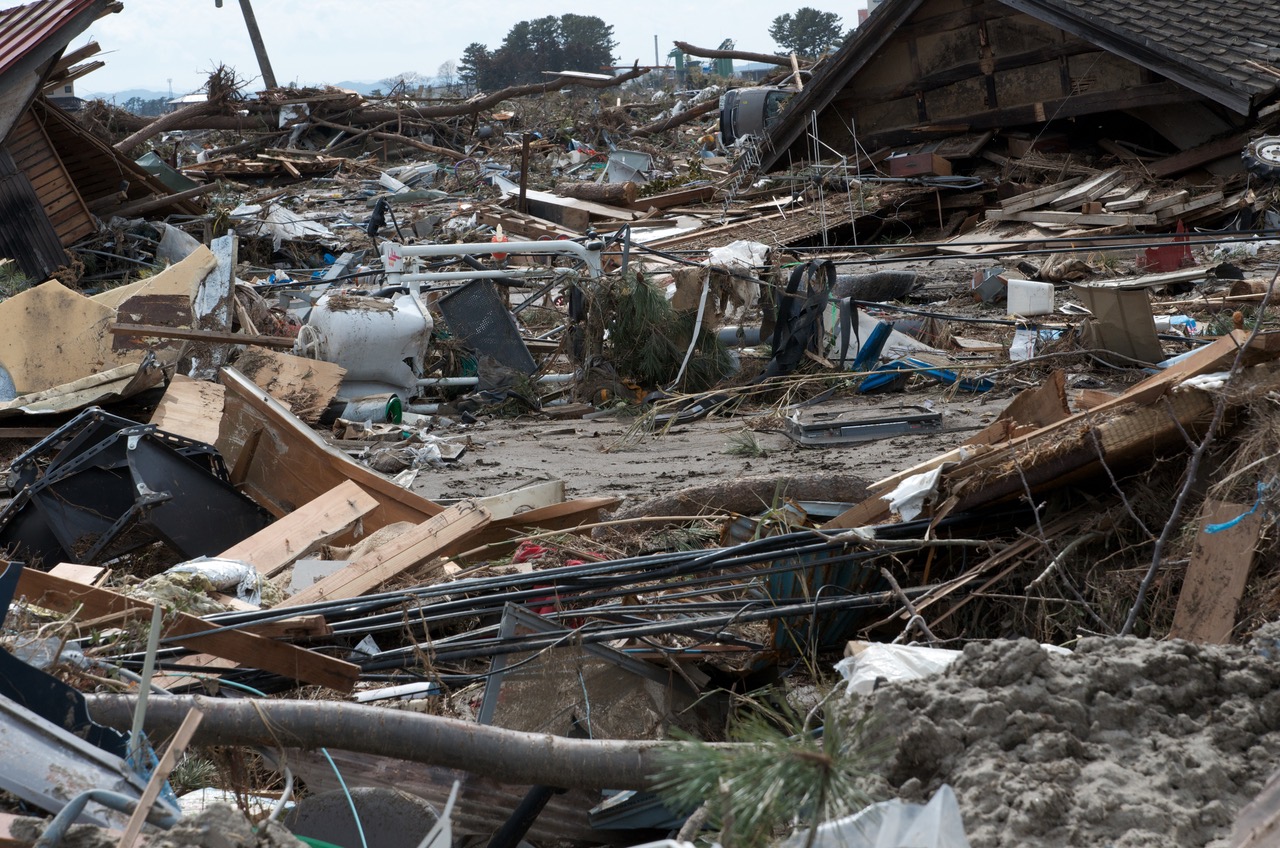
Kitakami village on 13th of March, 2020
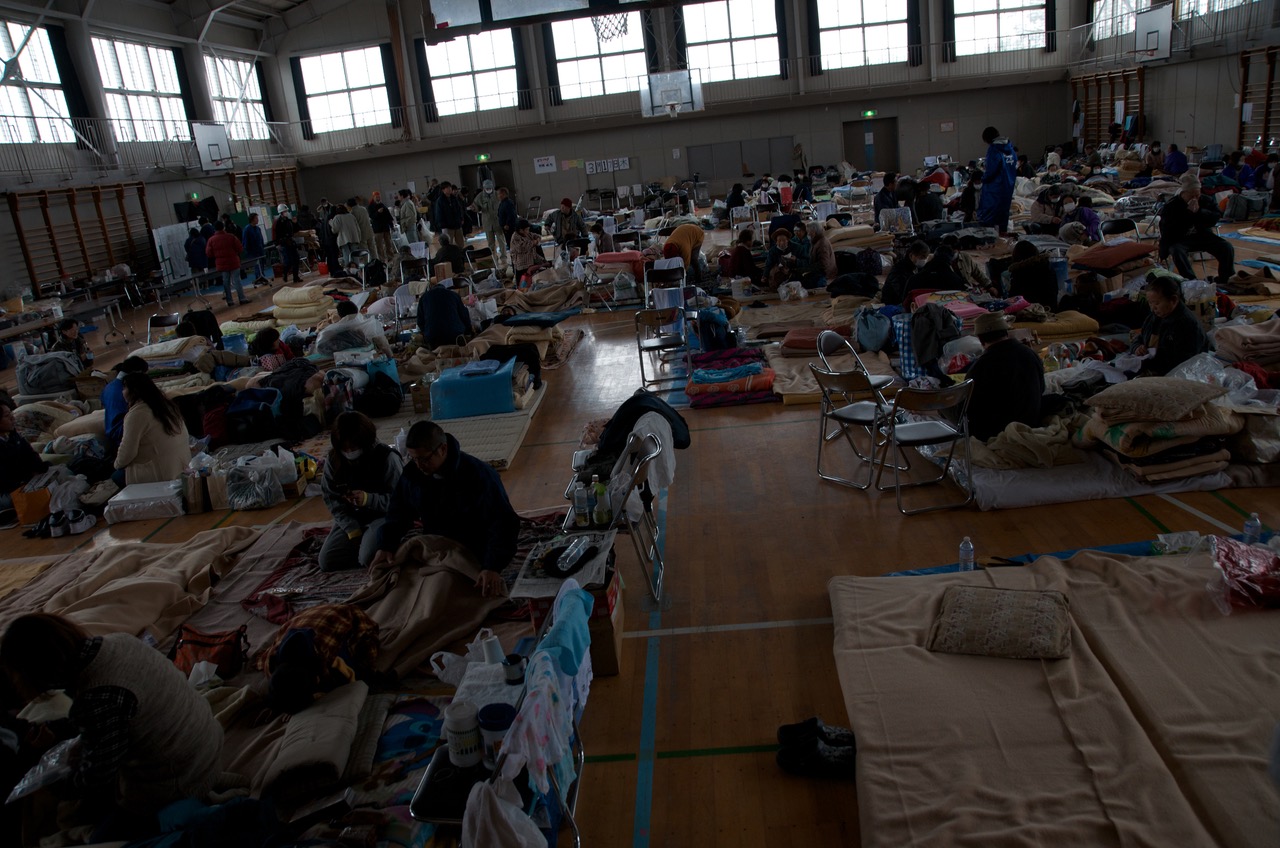
Our shelter in Natori city
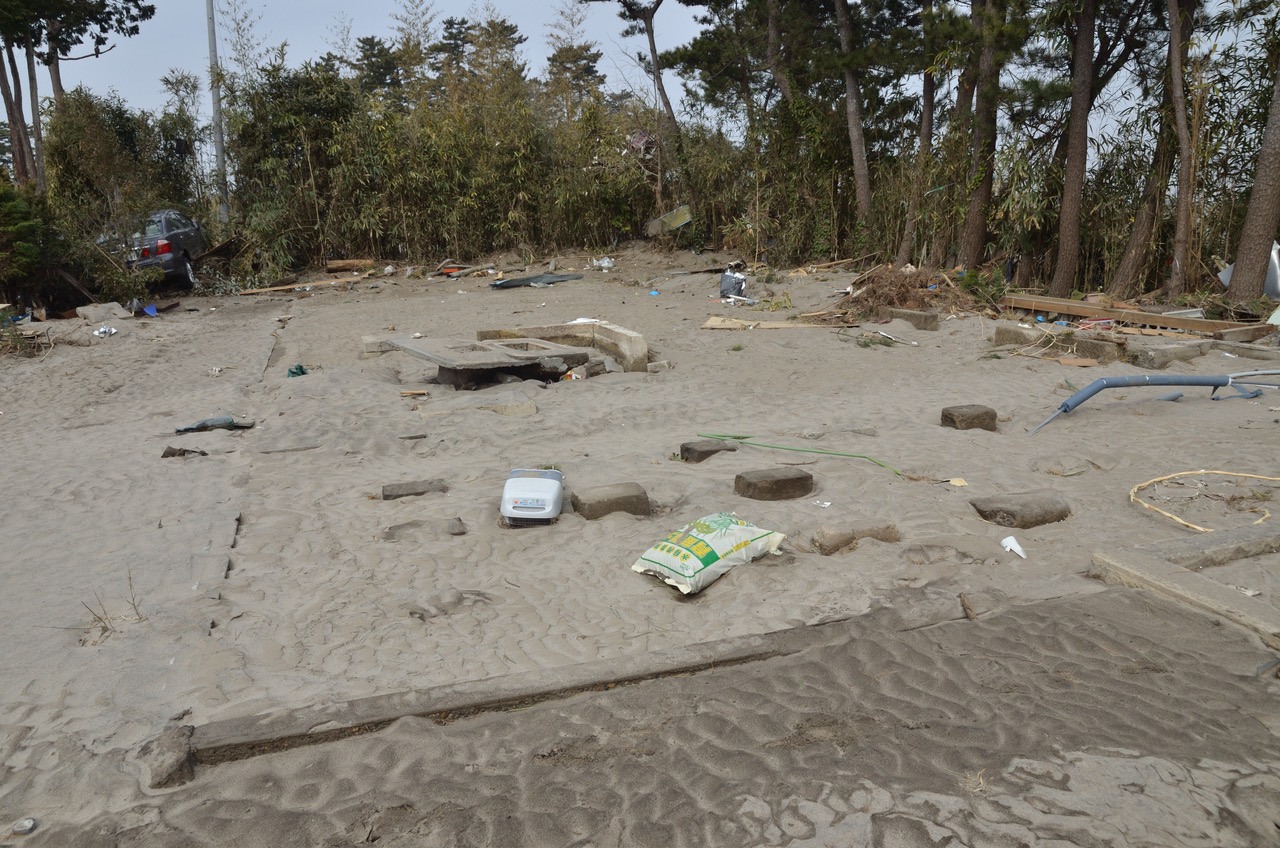
My house has gone and there is noting like strange dream
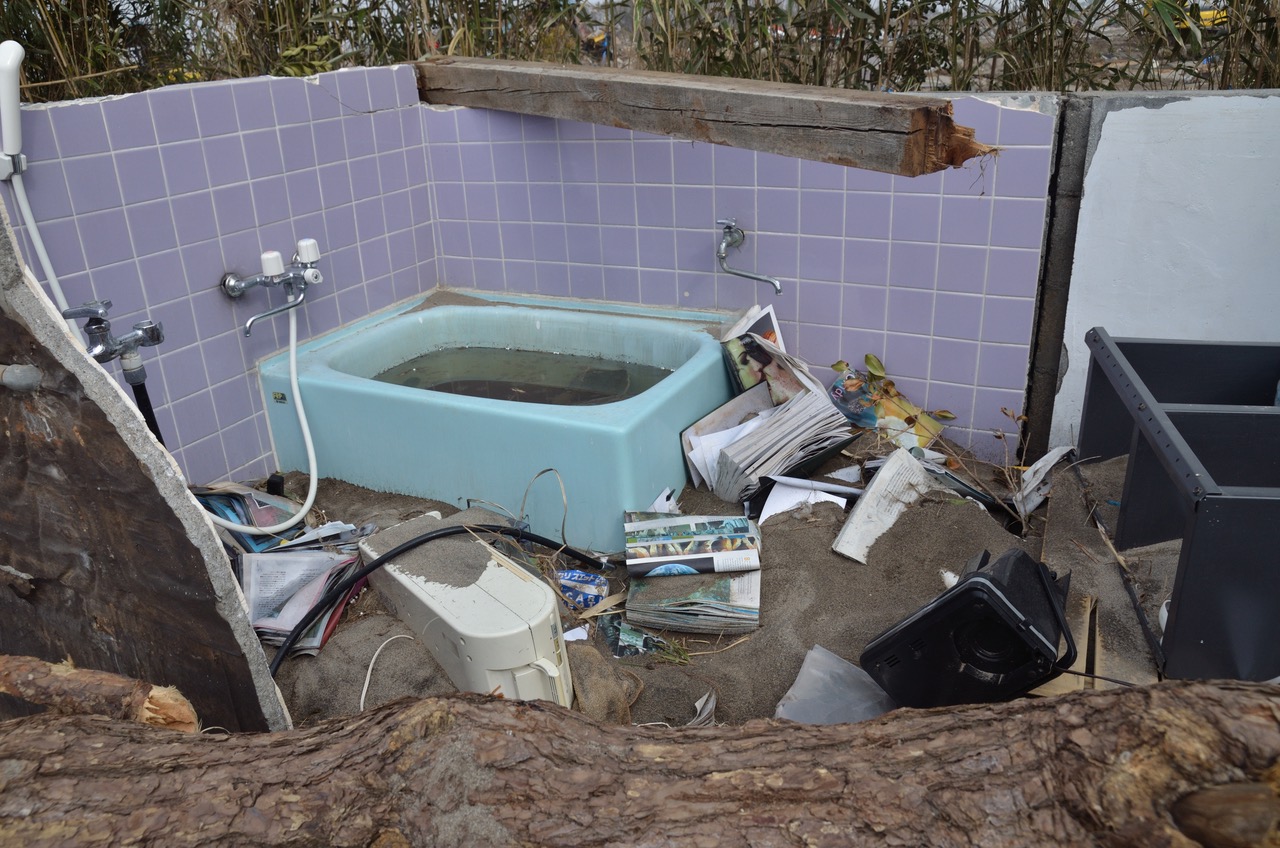
But, my bathroom has left on the corner, it’s funny, sea water keep in bath tub.
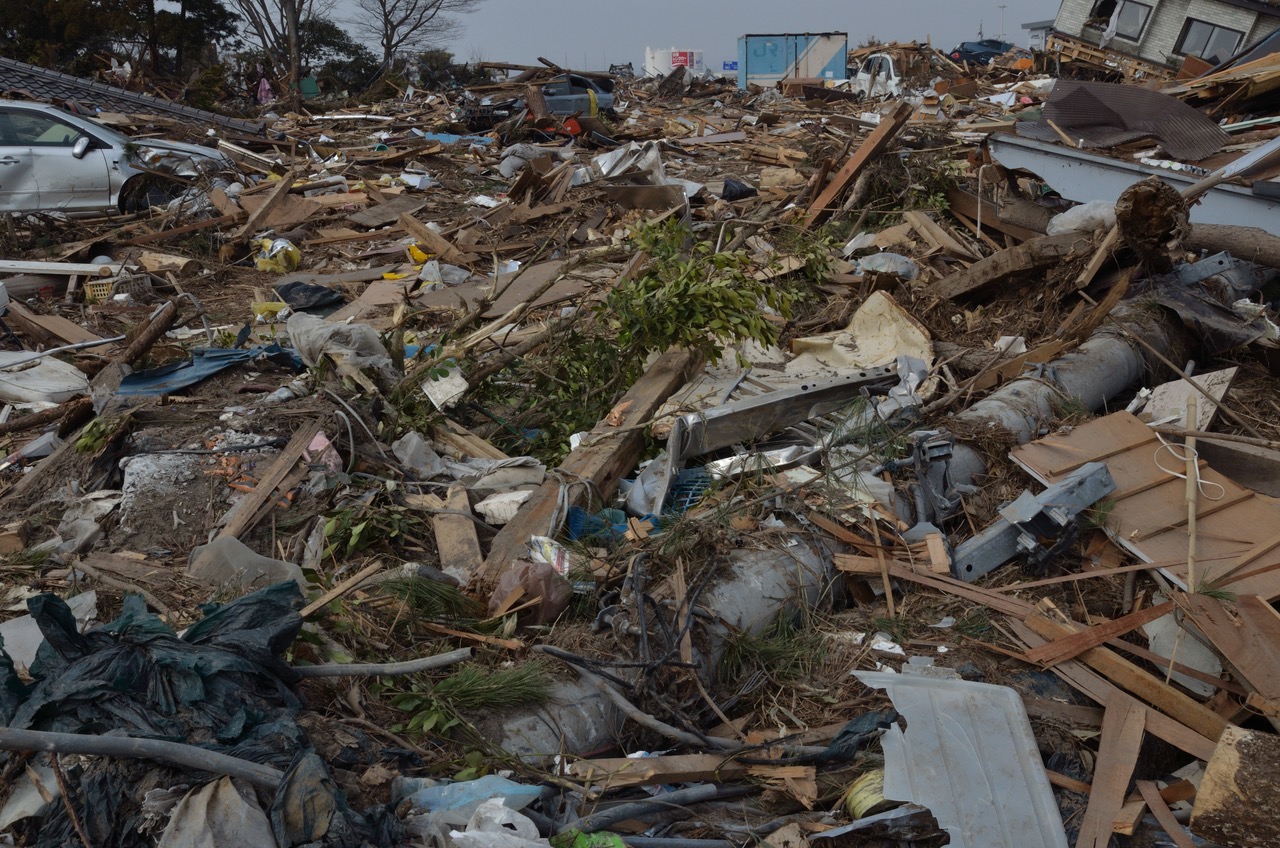
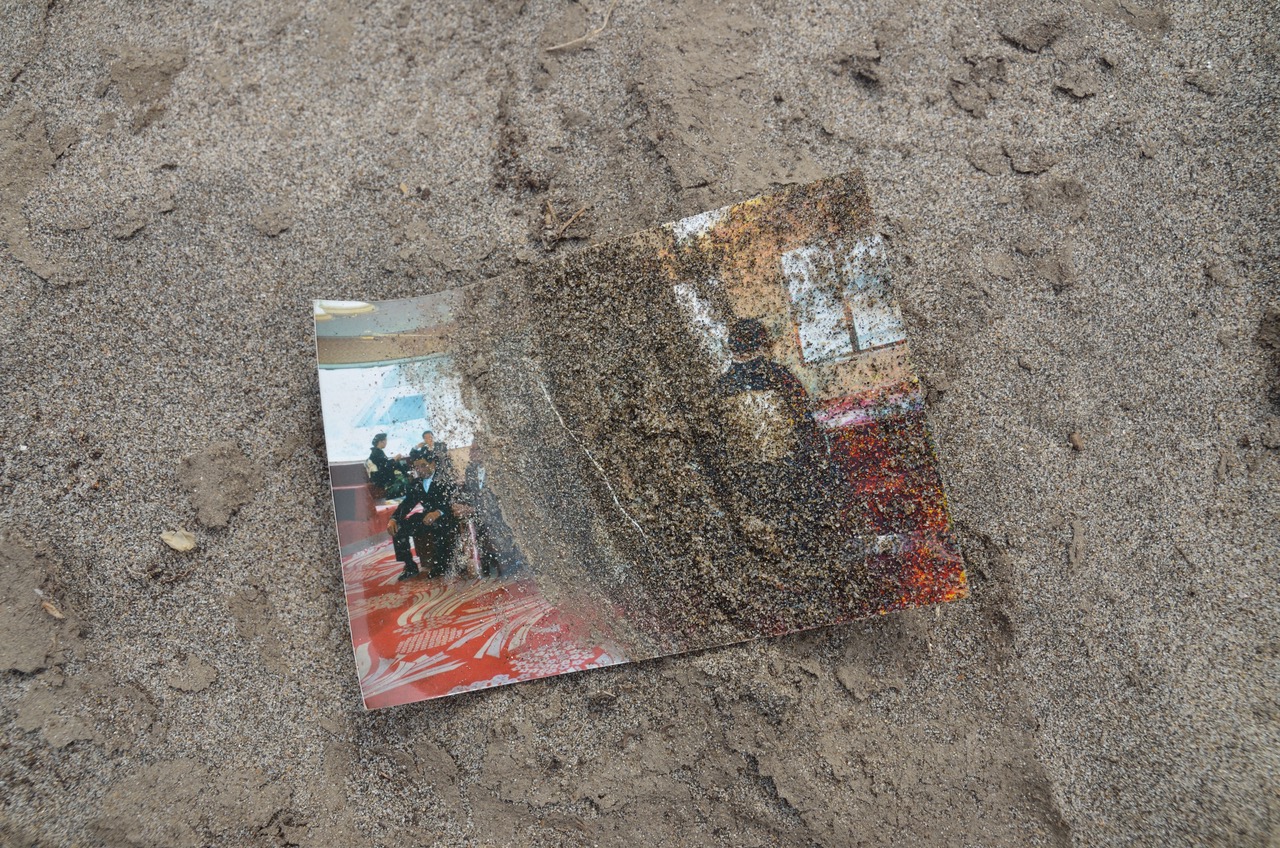
—
Lieko Shiga was born in 1980, in Aichi, Japan, she currently lives and works in Miyagi, Japan. Shiga received the coveted Kimura Ihei Photography Award in 2008. Major exhibitions include RASEN KAIGAN, Sendai Mediatheque, 2012; IN THE WAKE, Museum of Fine Arts, Boston, 2015; NEW PHOTOGRAPHY 2015. The Museum of Modern Art, New York, 2015; BLIND DATE, Marugame Genichiro-Inokuma Museum of Contemporary Art, 2017; and HUMAN SPRING, Tokyo Photographic Art Museum, 2019.
